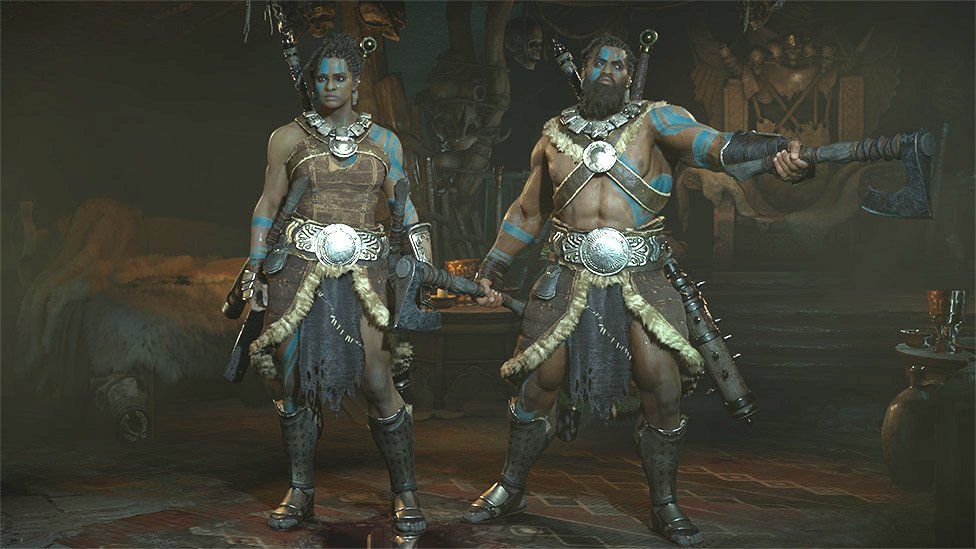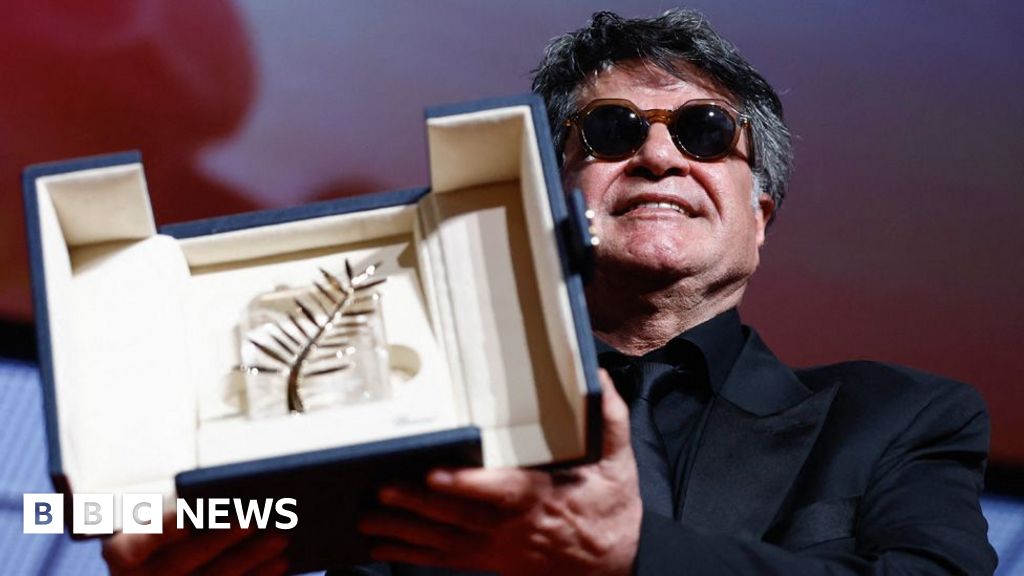ARTICLE AD BOX
 Image source, Blizzard
Image source, Blizzard
The barbarian character class in Diablo IV allows players to choose a broader-shouldered character model
By Andrew Rogers
BBC Newsbeat
After almost 10 years of waiting, Diablo IV has finally been released.
And one of the first things you'll do when you load up the action role-playing game (RPG) is modify your character's appearance.
Developer Blizzard says it's given players more customisation options than ever to make its latest the most inclusive title in the series.
But some people aren't convinced, and want companies to go further to make sure everyone feels represented.
Character customisation isn't a new feature - everything from Animal Crossing to Dead by Daylight lets you alter your appearance.
But it's something that's becoming more prominent in modern games.
In the past you might have had a handful of looks to choose from, but now players have many more options.
That's partly a response to complaints that female, LGBT and gamers of colour didn't feel there were enough options for them.
And in a game like Diablo IV - which can be played for 100 plus hours - the demand to increase them was high.
The fantasy game gives players five character classes - barbarian, rogue, sorcerer, necromancer, and druid - each with different abilities.
From there, players can choose a body type, change skin tones and hairstyles and add tattoos and piercings.
Image source, Blizzard
Image caption,Diablo IV's character creator has a vast range of customisation options - but they can vary depending on what type of character you choose
For gamers like Ashlyn, learning about the new options was an emotional moment.
The streamer, known as Actually Arcane on Twitch, shared a video of her emotional reaction to seeing Diablo IV's character creator for the first time.
"I pulled up the character creation screen and thought 'that character is built like me, like somebody who is just naturally broad-shouldered, big boned,'" she says.
"It was really a powerful moment because I was seeing myself in a game that I had been so excited to play.
"Even with all the character customisations that are available in a lot of games nowadays, it's still really hard for me to get a character that looks like me with any kind of body diversity."
Ashlyn says the response to her video, which has been seen more than 1.5 million times on Twitter, surprised her.
But she's glad it's brought attention to how representation in games can make a big difference.
Image source, Actually Arcane
Image caption,Ashlyn's reaction to seeing a wider range of body types in Diablo IV has been seen 1.5 million times on Twitter
Diablo IV has also been criticised for what it doesn't let you do.
Body types are linked to character classes - you have to select a druid or barbarian to play as a fuller-figured character, while those who want a slimmer avatar have to play as a mage or a rogue.
Ashlyn says she thinks Diablo has taken a step in the right direction, but would like to developers doing even more to challenge norms.
It's something Twitch streamer Ben Thompson, known to followers as ReadySteadyBen, agrees with.
He says black and LGBT+ gamers like him could be better served.
Ben points to black hairstyles as an example where some games still aren't getting things right.
"They'll put comical afros in it, or they'll put in these square shaped dreadlocks. It misses the mark," he says.
Image source, Ben Thompson
Image caption,Streamer Ben thinks it will take more than one game to change the wider picture across the games industry
He says Diablo IV has a wide range of skin tones but other options, such as the pre-set hairstyle selections, are too limited.
But Ben thinks the issue is wider than one game, and there's big variation across the industry when it comes to reflecting everyone.
Industry insider Tulay McNally, who's worked for big brands like EA, says companies can find it tough to keep up, especially as games can take so long to make.
"Developers want to do the right thing but the technology doesn't always allow them to do the things that they want to do," she says.
She points out new body types and features need to be animated and researched - means extra development time and money.
Image source, Tulay McNally
Image caption,Tulay McNally says games companies want to do better when it comes to representation - but it's not as easy as people might think
There's speculation online about whether Blizzard will increase the customisation options in a future update.
It could be worth its while.
Tulay, who now works for LGBT group Out Making Games, says making titles more inclusive is now seen as good business.
"Customisation matters because it enhances the immersion and engagement for players," she says.
"If there are more character options, you're broadening your player base because you're allowing more of those players to engage with your product and fulfil those dreams."

 1 year ago
67
1 year ago
67








 English (US) ·
English (US) ·